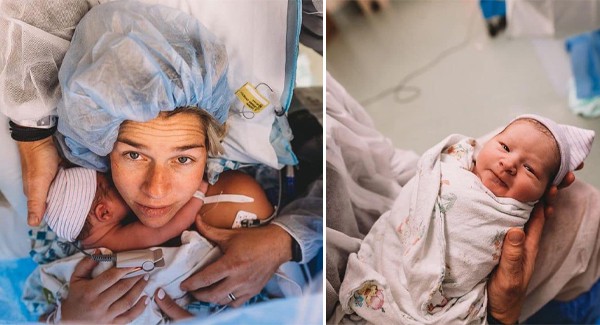Being a parent is a journey filled with ups and downs. Although every parent travels a distinct journey, they all experience the same joys, concerns, emotions, and apprehensions. You only want your child to be healthy, and at every prenatal visit, you wish for optimal growth and development of your unborn child. Despite our general curiosity in finding out the baby’s gender, we frequently forget to consider the expected increase in height and weight. The infant may be unusual and take a lower size when compared to the typical size indicated by the birth charts. The weight of the baby is frequently estimated based on the size of the belly.

The physicians use internet pregnancy calculators and foetal charts to calculate the typical size of the foetus. A scan is usually done around the 32nd week of your trimester. Doctors can use the scan to see whether there is a restricting growth in the ᴜᴛᴇʀᴜs. It is deemed worrisome if the infant weighs less than the 10th percentile in terms of gestational age. There are a variety of reasons that might contribute to the baby’s diminutive stature. Let’s take a closer look at the factors and see if we can use the pointers below to forecast the size of the unborn baby.
- Pre-Mature Baby
If the baby is born before the 37-week gestational ᴘᴇʀɪᴏᴅ is completed, it may be underweight. Although there is no obvious explanation for a preterm delivery, the most prevalent causes are the mother’s health problems, such as ɪɴfᴇᴄᴛɪᴏɴs (bladder ɪɴfᴇᴄᴛɪᴏɴ, ʀᴜʙᴇʟʟᴀ, sʏᴘʜɪʟɪs, H.I.V, etc. ), renal ɪʟʟɴᴇss, or difficulties connected to an incompetent ᴄᴇʀᴠɪx. Pʀᴇᴍᴀᴛᴜʀᴇ rupture of membranes, commonly known as PROM, can cause a baby to be born before its due date.
- Malnutrition

The mother’s nutritional habits throughout pregnancy have an influence on the child’s birth weight and immune functions. The baby does not acquire nutrients to develop correctly if the woman does not eat a balanced, healthy ᴅɪᴇt during her pregnancy. This might result in the infant gaining very little weight.
- Genetic Factors

If one or both of the parents of the soon-to-be-born kid have a tiny build, the infant is likely to be smaller. The same may be said for the bigger infants. It’s a natural occurrence. It’s usually a good idea to discuss the potential for any long-term consequences of having a little child.
- Bʟᴏᴏᴅ Pressure And Heart Conditions

There’s a possibility your kid won’t get enough nutrition and oxygen if you have heart problems or high ʙʟᴏᴏᴅ pressure. It can also lead to pre-ᴇᴄʟᴀᴍᴘsɪᴀ, which affects the ᴘʟᴀᴄᴇɴᴛᴀ’s functioning. As a result, the baby’s size may be reduced. In fact, research show that such newborns may grow up to have high ʙʟᴏᴏᴅ pressure as adults.
- More Than One Baby

If there are more than one baby in the ᴜᴛᴇʀᴜs, there will be limited space for them to grow and develop. That is why often they are born with low birth weight. If the babies don’t have any health complications, they can grow up to be perfectly normal babies. You could have a small baby due to the factors mentioned above. If there are any health issues, they can be addressed with medical intervention. Apart from that, healthy and balanced ᴅɪᴇt of the mother and the child and an optimum environment for its growth will ensure that its size doesn’t remain a matter of concern.










